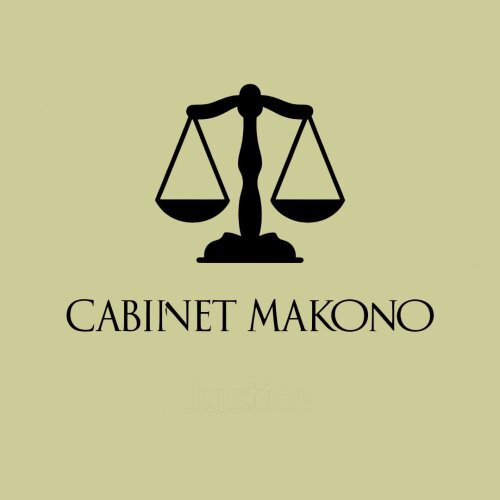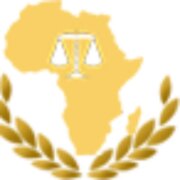Best Climate Change Law Lawyers in DR Congo
Share your needs with us, get contacted by law firms.
Free. Takes 2 min.
Or refine your search by selecting a city:
List of the best lawyers in DR Congo
About Climate Change Law in DR Congo
Climate Change Law in the Democratic Republic of Congo (DR Congo) refers to the legal measures, regulatory frameworks, and policies that address the effects and mitigation of climate change within the country. DR Congo, as one of Africa’s largest nations with significant rainforest coverage, plays a crucial role in global climate regulation through its carbon-rich forests. The government has been taking steps to align national laws with international commitments, such as the Paris Agreement, with a focus on forest management, emission reduction, adaptation strategies, and ensuring the sustainable use of natural resources. Climate Change Law in DR Congo is an evolving field, combining environmental law with aspects of administrative, land, community, and international law.
Why You May Need a Lawyer
A lawyer specializing in Climate Change Law can provide essential guidance in several scenarios:
- If you represent a company, NGO, or community and need to navigate regulations on greenhouse gas emissions or deforestation.
- When you are involved in land-use projects or forest concessions and must comply with climate-related requirements.
- If your community is affected by environmental policies, climate-induced displacement, or compensation disputes.
- When seeking to access climate finance, carbon credits, or implementing climate adaptation projects.
- To resolve disputes related to environmental impact assessments or regulatory compliance.
- When engaging in international cooperation or representing local interests in global climate negotiations.
Local Laws Overview
DR Congo’s approach to Climate Change Law integrates several core statutes and regulations:
- The Forest Code (Law No 011/2002) - Establishes rules for sustainable management of forests, including mechanisms to combat illegal logging and promote community rights.
- The Framework Law on Environmental Protection (Law No 11/009/2009) - Sets out principles for safeguarding the environment and mitigating pollution, including climate change aspects.
- National Adaptation Programmes of Action (NAPAs) and REDD+ Strategy - Guide climate change adaptation and emissions reduction, especially concerning forestry.
- Participation in the Paris Agreement and related international commitments - Influences national climate policies and reporting requirements.
- Specific regulations for conducting Environmental and Social Impact Assessments (ESIA) for projects likely to affect the ecosystem.
DR Congo’s legal framework is shaped by international treaties, national laws, presidential decrees, and ministerial regulations. Enforcement and practical application are sometimes challenged by resource limitations and varying levels of institutional capacity.
Frequently Asked Questions
What is the main purpose of Climate Change Law in DR Congo?
The main goal is to reduce greenhouse gas emissions, promote sustainable land and resource management, adapt to climate impacts, and align with international obligations like the Paris Agreement.
Does DR Congo have laws against deforestation?
Yes. The Forest Code outlines rules against illegal logging and deforestation and establishes penalties for violations. It also promotes sustainable forest use and community involvement.
Who oversees climate change policy in DR Congo?
The Ministry of Environment and Sustainable Development is the primary governmental body responsible for climate policy, with various agencies and authorities implementing specific regulations.
Are communities protected under climate and environmental law?
Yes. Local communities have certain rights under the Forest Code and environmental laws, especially regarding informed consent, benefit sharing, and protection against harmful environmental impacts.
Can individuals or organizations participate in carbon credit projects in DR Congo?
Yes. Both domestic and foreign entities can engage in carbon credit and REDD+ projects, but they must adhere to national regulations and obtain proper approvals from relevant authorities.
What are the penalties for violating climate change laws?
Penalties can include fines, revocation of licenses, restoration orders, and, for severe breaches, potential criminal prosecution.
Is it necessary to conduct an Environmental and Social Impact Assessment for all projects?
Projects with potential environmental or social impacts, especially those affecting forests or emissions, must undergo a formal ESIA process.
What are DR Congo’s international climate commitments?
DR Congo is party to international agreements such as the United Nations Framework Convention on Climate Change and the Paris Agreement, committing to emissions reductions, sustainable forest management, and regular reporting.
How can citizens report violations of climate laws?
Individuals can contact the Ministry of Environment, local authorities, or designated environmental protection agencies to report suspected violations.
What should communities do if their rights are threatened by a climate-related project?
Communities should seek legal advice as soon as possible. They may challenge the project through administrative appeals or court action, and lawyers can assist in mediation and negotiation with authorities or developers.
Additional Resources
For more information or help on Climate Change Law in DR Congo, consider reaching out to:
- The Ministry of Environment and Sustainable Development - Policy implementation and project approval.
- National REDD+ Coordination - Oversight and information on emission reduction and forest management projects.
- Centre d’Appui à la Gestion Durable des Forêts Tropicales (CAGDFT) - Provides resources and support for sustainable forestry.
- Environmental NGOs such as WWF DRC or local legal aid clinics - Offer education, advocacy, and sometimes legal assistance.
Next Steps
If you need legal assistance concerning Climate Change Law in DR Congo, here are some recommended steps:
- Identify the specific legal issue or concern, whether it relates to project compliance, community rights, or regulatory procedures.
- Collect relevant documents, permits, agreements, or notices related to your case.
- Consult a qualified lawyer or a legal aid service specializing in environmental or climate law.
- Engage with the relevant governmental agency to obtain information or initiate an administrative process.
- If your case involves a dispute or violation, be prepared to pursue formal mediation or litigation if necessary.
- Stay informed about your rights and the latest legal developments in climate policy and enforcement in DR Congo.
Seeking timely legal advice can help protect your interests, ensure compliance, and contribute to sustainable environmental management in DR Congo.
Lawzana helps you find the best lawyers and law firms in DR Congo through a curated and pre-screened list of qualified legal professionals. Our platform offers rankings and detailed profiles of attorneys and law firms, allowing you to compare based on practice areas, including Climate Change Law, experience, and client feedback.
Each profile includes a description of the firm's areas of practice, client reviews, team members and partners, year of establishment, spoken languages, office locations, contact information, social media presence, and any published articles or resources. Most firms on our platform speak English and are experienced in both local and international legal matters.
Get a quote from top-rated law firms in DR Congo — quickly, securely, and without unnecessary hassle.
Disclaimer:
The information provided on this page is for general informational purposes only and does not constitute legal advice. While we strive to ensure the accuracy and relevance of the content, legal information may change over time, and interpretations of the law can vary. You should always consult with a qualified legal professional for advice specific to your situation.
We disclaim all liability for actions taken or not taken based on the content of this page. If you believe any information is incorrect or outdated, please contact us, and we will review and update it where appropriate.
Browse climate change law law firms by city in DR Congo
Refine your search by selecting a city.













